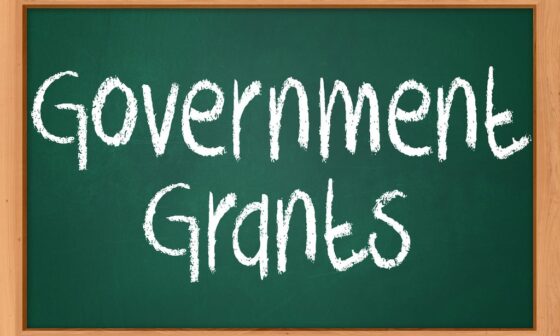Scholarships That Still Accept Applications After Deadline — Rare But Real Opportunities
 Jobs That Offer Relocation + Sponsorship (US/UK/Ireland) — Limited List 1
Jobs That Offer Relocation + Sponsorship (US/UK/Ireland) — Limited List 1
You missed a scholarship deadline, and your inbox is full of “sorry, deadline passed” emails. Breathe. It is not always game over. While most scholarship programs are strict about deadlines, a surprising number of opportunities are rare but real: they still accept applications after the published date, or they offer workable alternatives like rolling awards, extensions, or emergency/departmental funding. This guide shows you how to find those opportunities, when to ask for mercy, and how to submit a last-minute application that actually stands a chance.
Throughout this article you will get:
- A realistic picture of why some scholarships accept late applications.
- The exact types of awards that are likeliest to accept late entries.
- A proven outreach script to request an extension or late consideration.
- A step-by-step checklist and example table so you can act fast.
Everything below is actionable and grounded in real campus practice and scholarship sources.
Why scholarships that still accept applications after deadline exist
It helps to start with the obvious: deadlines exist for a reason. Funds must be allocated, selection committees must meet, and paperwork must close. Still, many scholarship administrators face the same realities you do: unfilled awards, technical submission problems, or late availability of funds. For that reason, some scholarships have internal policies or flexible practices that allow late submissions in specific cases. For example, university financial aid offices often tell students to contact them if a deadline was missed because institutions sometimes consider late documents when funds remain. Practical advice sites and university pages advise contacting the school directly if you miss scholarship or financial aid deadlines. (Shorelight)
Two common facts to remember:
- Some scholarships are intentionally built with rolling or monthly windows that keep accepting applicants until funds are exhausted. (bold.org)
- Local, departmental, and private community awards, or programs with small pools of applicants, sometimes extend deadlines or accept late materials if awards remain. Recent press items show local scholarships extending deadlines to allow more applicants. (LMT Online)
So the practical takeaway is: missing a deadline reduces your odds but it does not always remove your option to apply.
Types of scholarships that are most likely to accept late applications
If you need to spend your limited time chasing late opportunities, focus on the types most likely to be flexible. Below are the categories that often offer late options, and why.
- Rolling scholarships
- Definition: awards that evaluate applications as they arrive and grant until funds run out.
- Why they accept late applicants: there is no single closing date; funds are allocated continuously. Sites that list monthly or rolling awards are good places to search. (bold.org)
- Institutional and department scholarships with internal budgets
- Definition: awards controlled by a college department, program, or campus foundation.
- Why they accept late applicants: departments sometimes have discretionary funds left after the main round and will accept late packages if they see a strong fit. University pages often note that consideration of late applications may occur if scholarships are still available. (admissions.uni.edu)
- Emergency or hardship scholarships
- Definition: short-notice grants intended to cover urgent situations (housing, fees, medical).
- Why they accept late applicants: these are purpose-driven and awarded based on need rather than long selection cycles. Look for “emergency funds” on campus websites or ask the financial aid office.
- Local community and business scholarships
- Definition: awards administered by local companies, clubs, or small foundations.
- Why they accept late applicants: smaller pools, local priorities, or flexible selection committees. Local newspapers and community sites often report deadline extensions for such awards. (manisteenews.com)
- Awards with rolling monthly competitions or repeated cycles
- Examples: small private awards that run new competitions monthly or quarterly; platforms that list “last-minute” or “monthly” scholarships. These are especially helpful if you missed the main season. (Orbit)
Table: Quick comparison — scholarship types and late-application likelihood
| Scholarship Type | Likelihood of Accepting Late Apps | Typical Reason to Try | How to Find Them |
|---|---|---|---|
| Rolling scholarships | High | No fixed closing date | Scholarship platforms (Bold.org, Fastweb) (bold.org) |
| Institutional/Departmental | Medium-High | Unused internal funds | University scholarship pages; contact department admin (admissions.uni.edu) |
| Emergency/hardship funds | High (for need) | Short-term crisis relief | Financial aid office, student services |
| Local/private community | Medium | Small committees, extensions | Local news, community foundations (manisteenews.com) |
| National, high-prestige awards | Low | Rare exceptions | Rare; contact sponsor but expect strict rules |
Two do-follow resources to bookmark now
When you need to act quickly, these two reputable sources are excellent starting points for last-minute scholarship hunting and advice.
- Bold.org — last-minute and rolling scholarships, searchable by deadline and frequency. (Use this to find monthly or open windows.)
Link: Bold.org (last-minute scholarships). (bold.org) - Shorelight (student advice) — practical guidance on what to do if you missed a scholarship or financial aid deadline, with steps to contact financial aid offices. (Shorelight)
These links are included inline so you can click and start searching for late opportunities immediately.
How to request an extension or late consideration: exact email script that works
If you want scholarship administrators to even consider your late materials, your outreach must be concise, polite, and factual. Below is a short script you can customize and send to the scholarship contact or the financial aid office.
Subject: Request for Late Consideration — [Scholarship Name] — [Your Full Name]
Email body:
Hello [Name or Scholarship Office],
My name is [Full Name], an incoming [freshman/transfer/returning] student at [University] majoring in [Major]. I recently learned about the [Scholarship Name] and I understand the posted deadline was [date]. Due to [brief reason — e.g., unexpected health issue, technical submission problem], I was unable to submit my materials on time. I remain highly interested in this award because [one short sentence linking your experience to the scholarship’s mission]. If funds remain available, I respectfully request guidance on whether late submission or consideration is possible and what materials you would require. I can submit everything within [48 hours/72 hours]. Thank you for considering my request. I appreciate any guidance you can provide. Best regards, [Name], [Phone], [Email], [Student ID if applicable]
Why this works:
- It’s short and polite.
- Gives a legitimate reason without oversharing.
- States readiness to submit immediately.
- Connects applicant to scholarship purpose.
Universities and scholarship officers often respond when the email is professional, and they sometimes open a short window or direct you to other awards.
How to submit a strong last-minute scholarship application — the 48-hour checklist
If a committee agrees to accept your late package, you must move fast. Here’s a prioritized checklist for the next 48 hours.
Within 0–12 hours
- Confirm the exact materials required.
- Get your personal statement essay polished and targeted for that award. Tailor it to the sponsor’s mission.
- Ask recommenders for immediate submission and provide them with exact instructions and deadlines.
Within 12–24 hours
- Complete all forms, transcripts, and any proof of eligibility.
- Proofread everything (no typos, consistent dates, readable PDF).
- Convert files to the preferred format and label them clearly: LASTNAME_FIRSTNAME_TRANSCRIPT.pdf, etc.
Within 24–48 hours
- Submit via the method they accept (email, portal, deliverable link).
- Send a follow-up email to confirm receipt and express gratitude.
- Save screenshots of the submission or confirmation.
A few evidence-based tips: scholarship programs often skip or discard incomplete files; giving them a complete, well-formatted packet increases your chance of consideration. Campus pages encourage early contact because some awards will be considered if funds still remain. (admissions.uni.edu)
Real examples and reported cases
- A university site notes that their scholarship application may still be accepted after the priority deadline if funds remain, but they stress that earlier submissions get priority. This kind of conditional flexibility is common among institutions. (admissions.uni.edu)
- Financial aid advisers and student help centres advise contacting the office after missed deadlines because in practice some scholarships or emergency funds are distributed later, or funds can be reallocated for deserving applicants. Practical guidance pages with step-by-step advice echo this approach. (Shorelight)
- Scholarship directories and blogs maintain monthly “last-minute” lists of awards that are still open; these lists are a practical resource when you need alternatives right away. (Orbit)
These are not guarantees, but they are proof that late opportunities exist and that a strategic approach yields results.
When it’s not worth trying: know the hard stop scenarios
There are clear exceptions when you should not expend time on a late appeal:
- Federal or government awards with statutory deadlines. These are rarely flexible.
- Competitions with fixed evaluation dates where equity is mandatory. If the committee must evaluate all applicants together to be fair, they will not accept late packets.
- Large national prizes with contracts. Big foundations often have strict compliance requirements.
If the sponsor’s website explicitly states “late or incomplete applications will not be considered”, that usually means exactly that. Don’t waste time forcing the issue in those cases; redirect efforts to rolling or local awards.
How to build a sustainable “late-opportunity” scholarship strategy
Missing one deadline is painful but it can become a competitive advantage if you build habits that catch last-minute opportunities and reduce future misses.
- Weekly scholarship sprint
- Spend 1 hour each week scanning rolling, monthly, and local scholarship lists. Bookmark any “still open” awards. Sites with rolling lists update frequently. (bold.org)
- Build a contact template
- Save the outreach script above and customize 10 lines for each award; you’ll save time when you need it.
- Network locally
- Local clubs and small foundations are often overlooked but flexible. Establish relationships early so you learn about extensions or emergency funds first. Community awards are frequently announced in local news; pay attention to local press. (manisteenews.com)
- Keep a “next-move” list
- If rejected for one award, immediately apply to three rolling alternatives. Momentum matters.
Example short-answer essay template for last-minute submissions
Use this as a scaffold for concise, powerful entries when you must write quickly.
Prompt: Why do you deserve this scholarship? (250–400 words)
Template:
- 1 sentence: Introduce yourself and the connection to the scholarship mission.
- 2–3 short paragraphs: Give 2 specific examples of your impact or need, with numbers where possible.
- 1 short paragraph: Explain how the scholarship will directly change your next 12 months.
- Closing line: Thank the committee and express your readiness to provide any additional information.
This structure keeps your message focused, credible, and easy for a committee to evaluate quickly.
Final checklist before you send an appeal or late application
- Did you contact the scholarship office with a clear, polite email?
- Are all required documents complete and correctly formatted?
- Did you explain concisely why you missed the deadline?
- Did you tailor your essay to the scholarship’s mission?
- Did you include contact info and student ID to speed review?
- Did you copy your submission confirmation and save a screenshot?
If you can check every box, you’re giving yourself the best possible chance.
Closing thoughts — the smart hope
Scholarships that still accept applications after deadline are rare, but they are real. Treat this as a twofold process: 1) act fast and politely to request consideration for the specific award, and 2) broaden your search immediately to rolling, local, departmental, and emergency funds. Many students who miss deadlines find that being proactive, courteous, and precise opens doors they thought were closed.
Remember these key ideas:
- Always contact the administrators first. Many times they will guide you to the best path. (Shorelight)
- Target rolling and local awards for the highest chance of late acceptance. (bold.org)
- Use the 48-hour checklist and polished outreach script to maximize the odds when a late window appears.
Good luck. If you want, I can now:
- Search for current rolling or last-minute scholarships in your country, or
- Customize the outreach email and essay template for a specific scholarship you missed.
Which would you prefer?






2 comments
Can you be more specific about the content of your article? After reading it, I still have some doubts. Hope you can help me.
please ask your questions, we will be glad to assist.